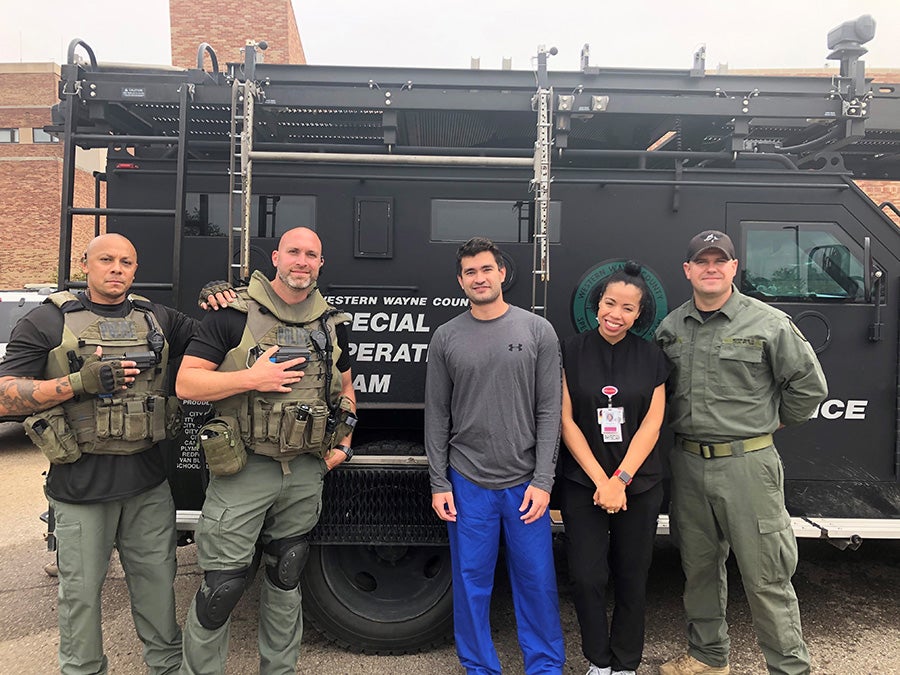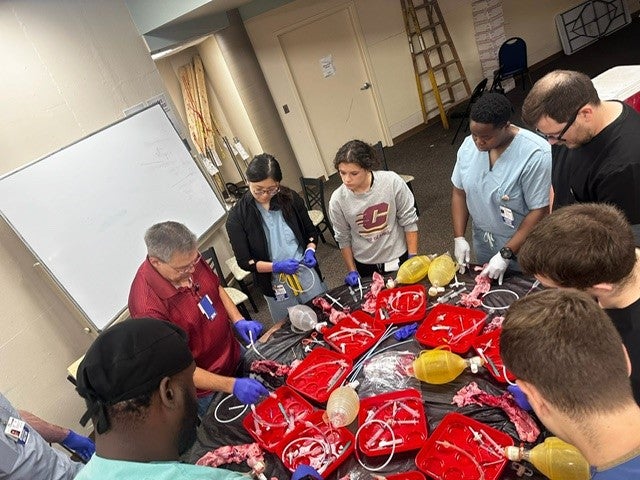Didactics

We provide highly engaging 5-hour didactics sessions every Wednesday from 8am -1 pm which include our faculty and residents presenting high yield and concise case-based lectures covering content from Rosen’s, Tintinalli’s and evidence-based articles. We utilize the Foundations of EM Curriculum for case-based learning. To strengthen our residents' pediatric knowledge base, we have incorporated pediatric pearls into every lecture pertinent to the EM core subject that week. Board-style questions are integrated into these lectures to solidify the concepts discussed.
Additionally, we have integrated written and oral board preparation into our curriculum by discussing Rosh Review questions and oral board cases. Our didactics experience is further enriched with ultrasound, procedural, and simulation labs throughout the year. To keep our residents and faculty up to date on evidence-based medicine, we meet throughout the year for a journal club to discuss peer-reviewed articles.
In addition to core EM content, we also have monthly lectures incorporating Morbidity and Mortality, Multidisciplinary Grand Rounds, Trauma, Quality Improvement, and Osteopathic Post Graduate Training (OPTI) through our Statewide Campus System (SCS) during our didactics sessions.
In addition to core EM content, we also have monthly lectures incorporating Morbidity and Mortality, Multidisciplinary Grand Rounds, Trauma, Quality Improvement, and Osteopathic Post Graduate Training (OPTI) through our Statewide Campus System (SCS) during our didactics sessions.


Simulation Laboratory
Our residency program has a robust simulation curriculum that meets ~8 times/year that provides our residents with excellent training in clinical vignettes in a low-stress environment at the Health Professions Simulation Lab (HPSL) at Schoolcraft College in Livonia, MI. Through simulation, our residents are given interactive educational opportunities that allow them to make timely decisions in real-life scenarios while preparing them for unexpected patient outcomes.
The HPSL has four patient simulation rooms organized like resuscitation bays with high fidelity simulators that include: 4 adult medical-surgical simulators, 2 obstetric simulators, 2 full-term newborns, a preterm newborn and a pediatric five-year-old. This gives our faculty and residents the ability to run a wealth of cases including pediatric, medical, surgical, and obstetrical emergencies. At the center of the simulation rooms, is a state-of-the-art control room that allows the senior resident or faculty to run the simulation cases effortlessly while allowing for important debriefing at the conclusion of the case ensuring competencies are achieved.
Finally, our residents are also given the opportunity to master their procedural skills such as performing intubation, arterial lines, central lines, along with transcutaneous and transvenous pacing. Simulation helps bridge the gap between traditional textbook learning and translating that knowledge to bedside care.



